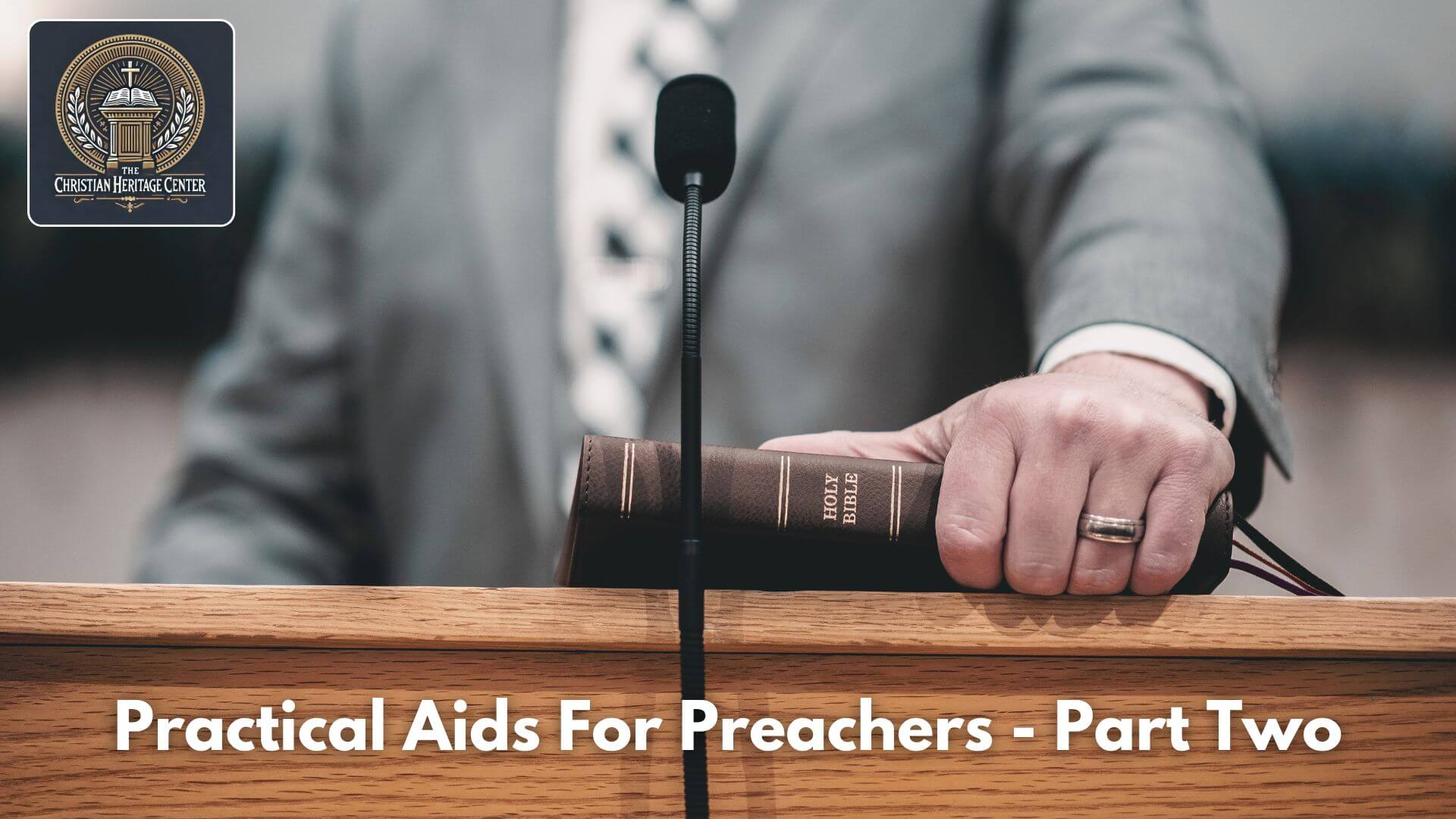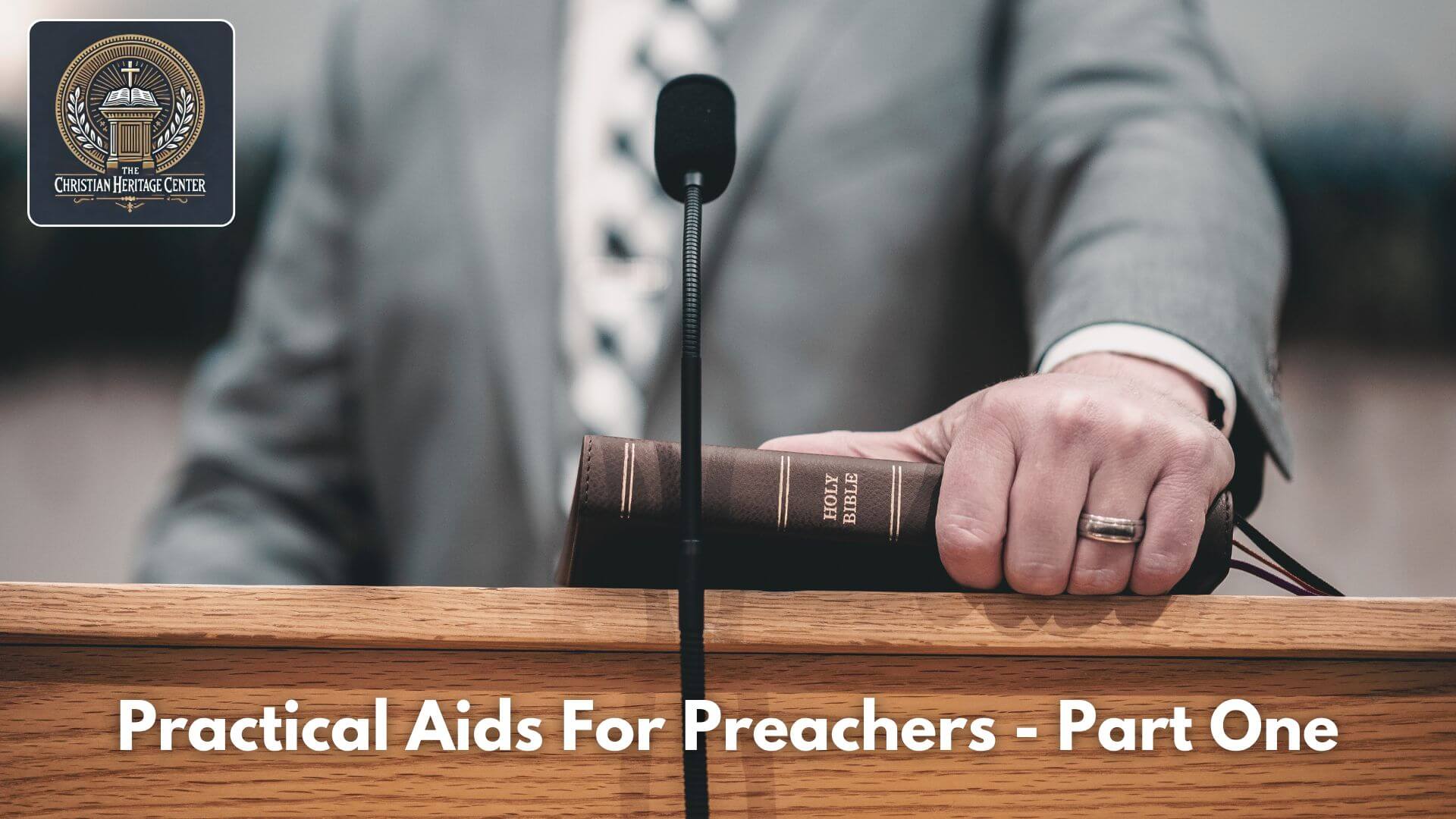This is the second part of a two-part series concerning practical aids for preachers. In this article aids five, six, and seven will be provided.
5. Be Mindful of Your Eating Habits Before Preaching
It doesn’t get much more practical than eating! We all eat, even ministers of the gospel. While food is essential for life, it must be subordinate to our calling and purpose. Preachers, in particular, should approach their eating habits with intentionality before preaching.
- Avoid Overeating: Large meals close to preaching can lead to discomfort, interruptions, or embarrassing moments. If there is too much eating, too near preaching, you may end up with a sporadic and regular pause in your message, most likely, this pause would be accompanied by the slight bounce of your body, as your hand is made into a fist covering the great opening in the front of your face, which is meant to be used to proclaim glorious realities! Avoid a large breakfast or dinner before preaching, otherwise your congregation may have difficulties digesting your message!
- Don’t Neglect Eating: Ensure you eat enough to avoid feeling faint and jittery especially if your schedule disrupts usual mealtimes. This is especially relevant for coffee drinkers. Sunday mornings often involve excessive caffeine and little substantial food. Balance your intake to avoid physical discomfort, stomach issues, lack of focus, and headaches.
Brothers, this comes down to the need for you to understand your schedule, physical constitution, and needs. Figure out what works best for you. The work of preaching is worthy of men being at their best. Food and drink or the lack thereof can be a help and hindrance!
6. Be Specific Regarding Your Vocabulary
This aid is rooted in theological and philosophical truths about preaching but has practical implications. Preaching is a proclamation—a declarative act grounded in divine authority and truth. As such, preachers should speak with language that reflects the authoritative nature of the message.
- Avoid Ambiguity: Steer clear of phrases like “I think,” “probably,” “potentially,”, “possibly”, or “I believe” when referring to scriptural truths.
- Use Declarative Language: Present the truth as firm, unchanging, and unquestionable.
- Convey Reality: The man of God must take pains to present the truths of scripture as reality, truth, history, and fact, not as mere concepts, thoughts, or ideas. The message we proclaim is authentic and true: speak accordingly.
Be thoughtful with your words, careless speech can undermine the message. Utilize language that is certain, shows conviction, and affirms the divine authority of Scripture. Let your speech reflect the gravity and authenticity of the message you are proclaiming. We must sanctify Christ as Lord in our hearts and our speech as preachers of the gospel. Never allow any hearer to think to themselves, “Those are wonderful fairy tales” or “What neat hypotheticals?!”, but let them leave with the impression that you have spoken what is true.
7. Don’t Be a Spectacle When You Make a Mistake
Preachers will inevitably fumble and misspeak. While we should strive for clarity and coherence, mistakes are unavoidable. It may be that we use an unintended word, mispronounce a term, slur our speech, use the wrong name, or simply say the wrong thing. The temptation is to make a scene, be a spectacle, or draw more attention than already was placed upon it. In these moments, various responses may be appropriate.
- Avoid Overreacting: There is a variety of options regarding Band-Aids for such wounds, but the preacher must be sure not to make it more injurious! Some bandages are more gruesome than the original wound. Make certain you do not cry out with sounds of disgust or throw your head back in frustration while cringing in your face, for though you are the object of these expressions in your mind it’s your congregation you’re making faces and sounds at!
- Apologize and Move On: A simple “Excuse me” or quick correction is often sufficient.
- Ignore Minor Errors: In some cases, it’s best to proceed without drawing attention to the mistake.
- Restate What You Miscommunicated: There are many times when you simply need to restate what you said, correctly. Stop, and say it the right way.
- Use Humor Appropriately: Some occurrences naturally lend themselves to humor or provide a necessary break in the congregation’s solemnity, however, this should be rare. When it’s appropriate, it should be self-deprecating humor and lighthearted, but for the most part, it’s best not to dwell on the error.
Avoid turning small errors into spectacles that disrupt much more!
Preaching is a glorious calling that demands thoughtful preparation and execution. By considering these practical aids, we can strive to become better preachers for the glory of God. May the risen Lord Jesus Christ strengthen us for this great work.




